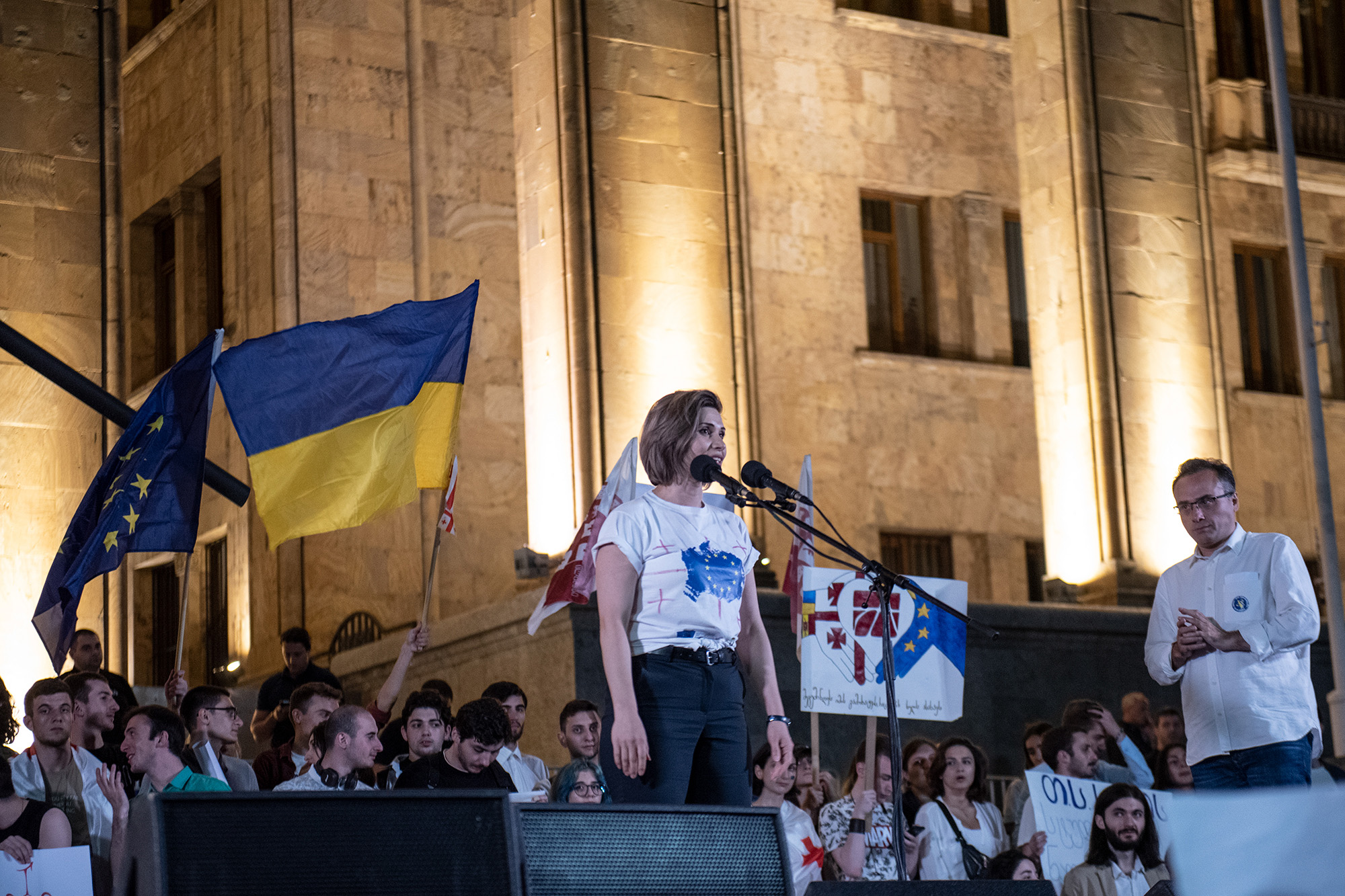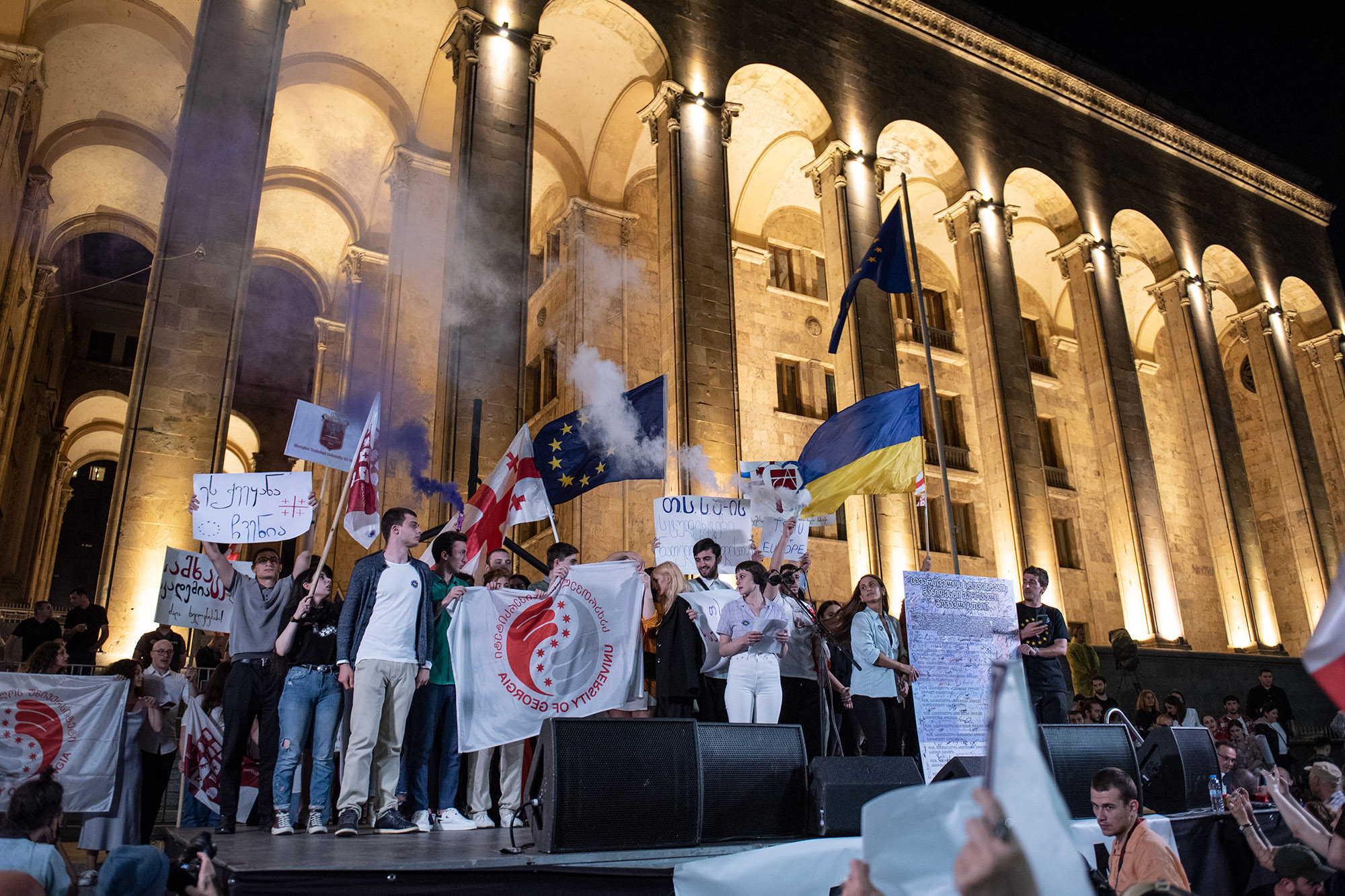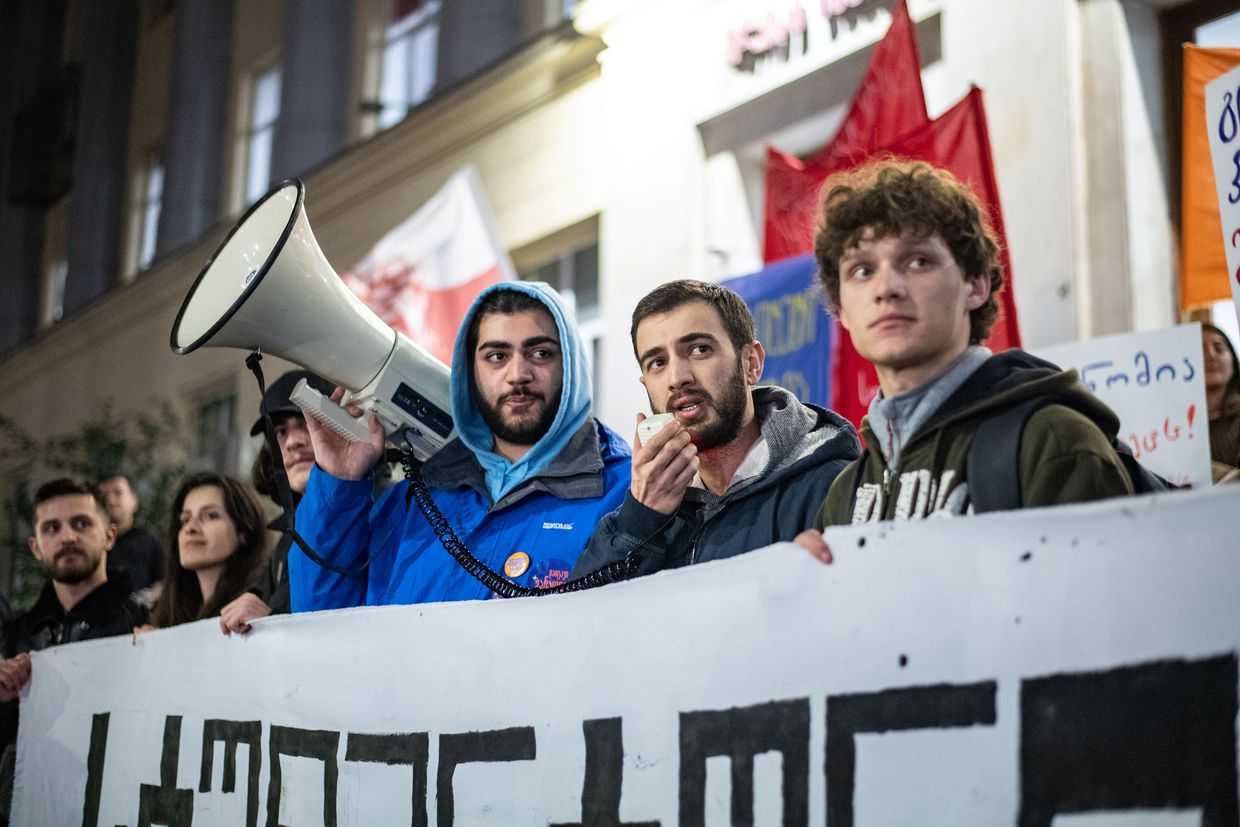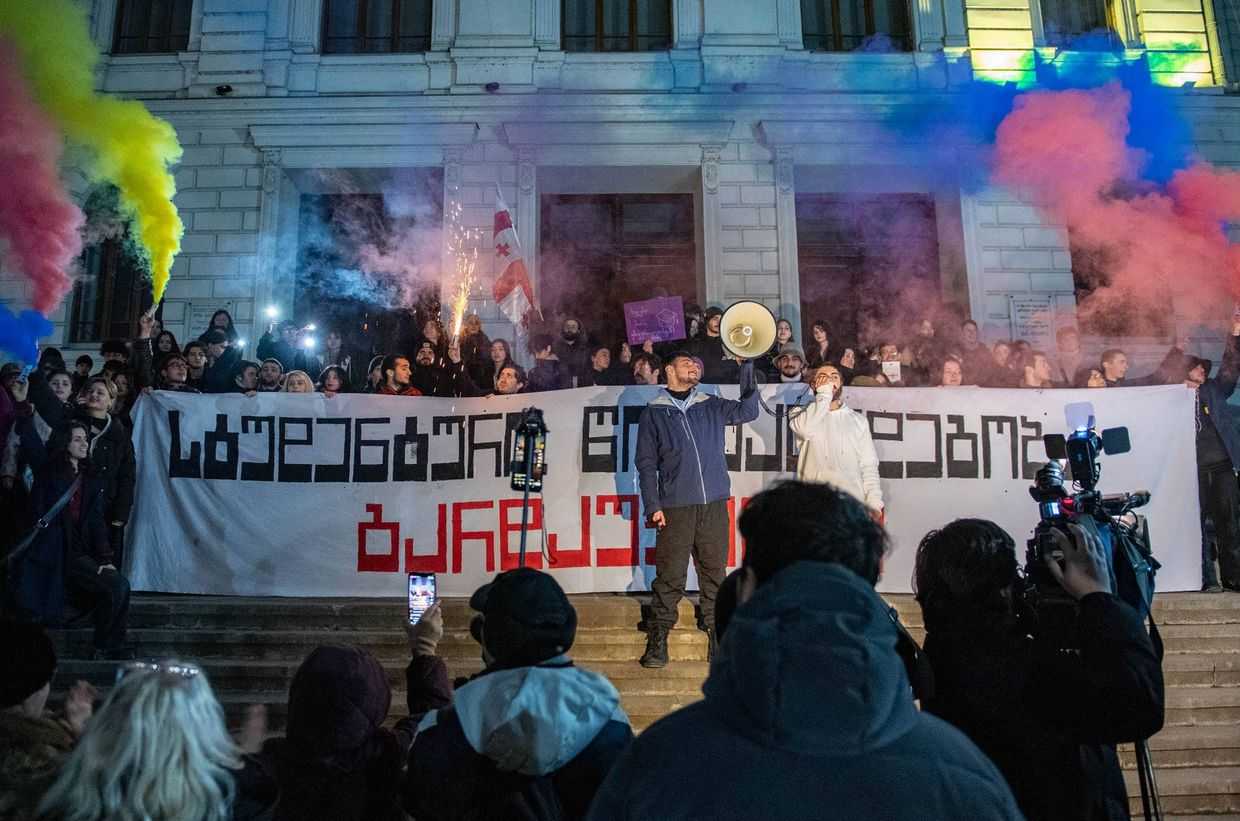
Protesters in Georgia have demanded that the government resign by 3 July, a day after the EU declined to grant the country candidate status while granting it to Moldova and Ukraine.
At a demonstration on Friday in front of parliament, protest leaders said that a government of ‘national consent’ must be formed with the agreement of the ruling party, opposition, and civil society groups. They said this government must fulfil all of the 12 points outlined by the EU before Georgia’s membership application could be reexamined.
Shota Dighmelashvili, one of the founders of the Shame Movement, which has been organising the protests, said the next protest would be held when their deadline passed on 3 July.
The demonstration on Friday was the second massive show of support for Georgia’s EU membership in a week, with tens of thousands of people also coming to the streets on Monday.
The demonstration saw a wide range of speakers, including Lado Apkhazava, a teacher from Guria who came to fame after selling violets in order to buy internet data for his students during the coronavirus pandemic. Apkhazava called for teachers to join the movement toward Europe.
Another speaker was Samira Bayramova, an ethnic Azerbaijani human activist from who has been challenging the far-right and pro-Russian group Alt Info in her hometown of Marneuli. Another activist, Irma Gordeladze, from Guria, demanded that Alt info be shut down.
[Read on OC Media: The woman challenging Georgia’s far-right]


Ukrainian President Volodymyr Zelensky also addressed the crowd, as did the head of his party’s parliamentary faction, David Arakhamia, who is of Georgian descent.
‘Yesterday Ukraine got the status. You are on the same path. Go forward, we will help you. Ukraine and Georgia together forever’, Zelensky said to applause.
Georgia, Ukraine, and Moldova all applied for EU membership soon after the Russian invasion of Ukraine.
The three countries were previously not expected to apply for several years, however, the invasion created renewed political will in Europe to speed up the process. Georgia, once seen as the top candidate for membership in the EU’s Eastern Partnership, has come under increasing pressure from Brussels in recent years due to perceptions of democratic backsliding, including rising political polarisation, a lack of judicial independence and media freedom, and the unofficial influence of Billionaire Bidzina Ivanishvili on the government.
The Georgian Government has reacted with defiance to the protests, insisting that what the EU termed Georgia’s ‘European perspective’ was an achievement in itself. The Government has also claimed that both Ukraine and Moldova were behind in terms of the reforms needed for EU membership.
On Friday, Gharibashvili said that Ukraine and Moldova were given candidate status as a ‘gift’ because of the Russian invasion of Ukraine.









